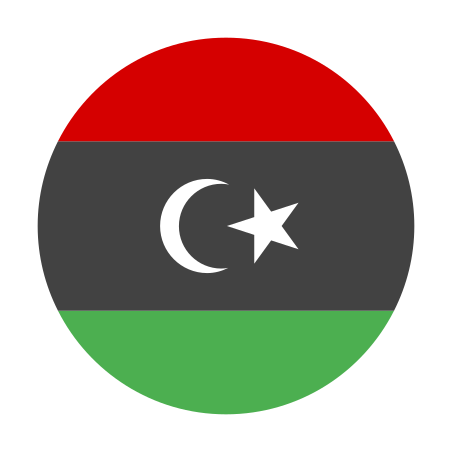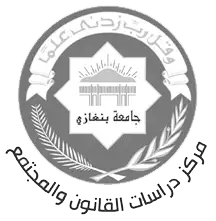Justice seeking and access to justice in Libya: Victims of oil pollution near the oases of Jalu, Jakharrah and Awjilah
Libya's oil production sometimes leads to disputes between companies and local inhabitants, such as in oasis areas Jalu, Jakharrah, and Awjilah. For this study, Khadija Faraj interviewed people who were affected by oil pollution and local experts.
The production of oil in Libya sometimes leads to disputes between companies and local inhabitants. So it is in the three oasis areas – Jalu, Jakharrah, and Awjilah – at the heart of this case study. This research draws on interviews with eight people who were affected by oil pollution, and with local experts. It focuses in particular on two people in Jakharrah, and one case in Jalu and Awjilah each.
People suffered diverse damage or grievances due to the arrival of oil companies. Suleiman argued that nearby buried oil residues had rendered his land unsuitable for agriculture. Osama argued that oil production had contaminated the water, which led to the death of his camel. Adel’s farm was damaged by polluted air, soil, and groundwater. In Jalu, people were wary about planned oil production and the impact it would have on their ‘Green Belt’. When they protested against the oil companies, a clash with the companies’ guards resulted in the death of one protestor, the brother of Ibrahim. Further, oasis inhabitants complained about the frequent diseases among people and animals in the oasis, and attributed blame to oil pollution.
All interviewees attributed most blame to the polluting activities of oil companies. Some argued that the companies did not adhere to safety standards, or acted in violation of their rights. Victims sought different things. Osama hoped to receive material compensation. Suleiman and Adel demanded compensation, that the oases’ pollution would be addressed, and that oil companies would abide by environmental standards. Ibrahim, the man whose brother was killed protesting, demanded simply that the oil company would not come to Jalu.
These men chose different mechanisms. There was: i) the legal path which started by filing a complaint with the police and public prosecution; ii) the civil track which involved the communication (through an NGO) with concerned state authorities; and iii) the political track, which is the formation of a committee of those affected to communicate their voice towards the state. Especially those who saw their own grievance as part of a collective one opted for a more political route aimed at state authorities.
The oil companies ignored the requests of Suleiman and Adel. Osama was offered compensation in return for dropping the suit. Suleiman’s case was special, due to the political context. So many of Jalu’s residents stood together in solidarity, that it made state officials nervous. At the time, the Gaddafi regime feared that any large popular gathering of disgruntled people could escalate and turn against the regime itself. To take the sting out of these protests, state officials pressured the oil company to communicate with Suleiman. The company ultimately agreed not to enter the Green Belt, a victory for the people of Jalu.
A major obstacle that the justice seekers faced, was the difficulty of proof. They had to prove: i) that their air, soil, and water was polluted; ii) that this pollution was the result of oil company activity, iii) that this pollution had caused their experienced damage. The oasis inhabitants had no access to an independent center for research and studies, and distrusted the experts of the National Oil Corporation and the oil companies. This inability to prove pollution, wrong-doing, and damage, critically hamstrung these justice journeys.
They were further deterred from pursuing expensive lawsuits, especially as they knew oil companies would be able to afford the best private lawyers. And so justice seekers often aimed not for judicial accountability, but for a form of reconciliation with the oil company.
During the Gaddafi regime, people were afraid to speak out about oil production. Oil companies worked with government permission, and people feared that criticising these companies’ pollution would anger the regime. But after 17 February 2011, oil pollution became visible and people talked about it everywhere. Even so, the bifurcation of state authorities in Libya created a new sensitive political context. Some alleged that certain actors would have a political interest in the closing of oil fields, and tried to achieve this aim by stirring up public anger about oil companies’ pollution.
This links to a last obstacle: the justice seekers considered that oil companies now operate without effective and neutral state control or oversight. They argued that the Environmental Public Authority is dead, whether in the control or in assessing pollution. In 2015, the chairman of the Board of Directors of the National Oil Corporation decided to form a committee from the Environment Public Authority to carry out a comprehensive environmental study in the oasis areas. But the committee’s results provoked anger in the oasis areas, where the report was seen as false. Inhabitants distrust the NOC’s agenda, and its role as both opponent and arbiter.
Two central wishes of the oasis inhabitants are that: i) there must be a neutral body that monitors the work of oil companies, and ii) an independent study center should be established in the oasis areas to study samples and assess pollution.
This summary was published in Suliman Ibrahim, Bruno Braak and Jan Michiel Otto (2022)'The Long and Winding Road: Justice seeking and access to justice in Libya', Leiden/Benghazi: Van Vollenhoven Institute/Benghazi Centre for Law and Society Studies.




